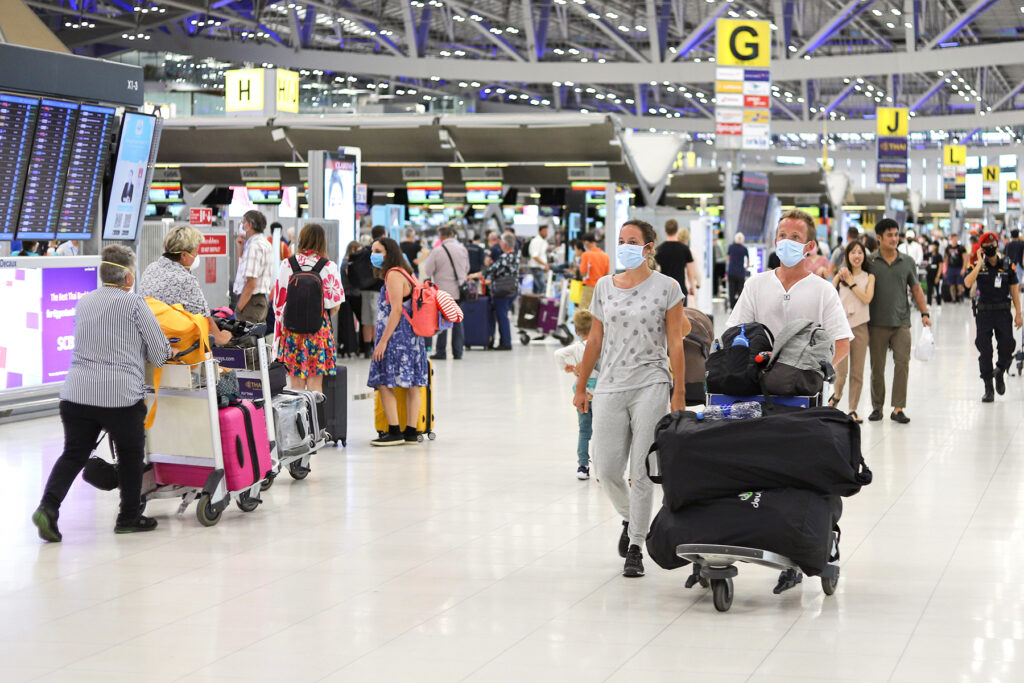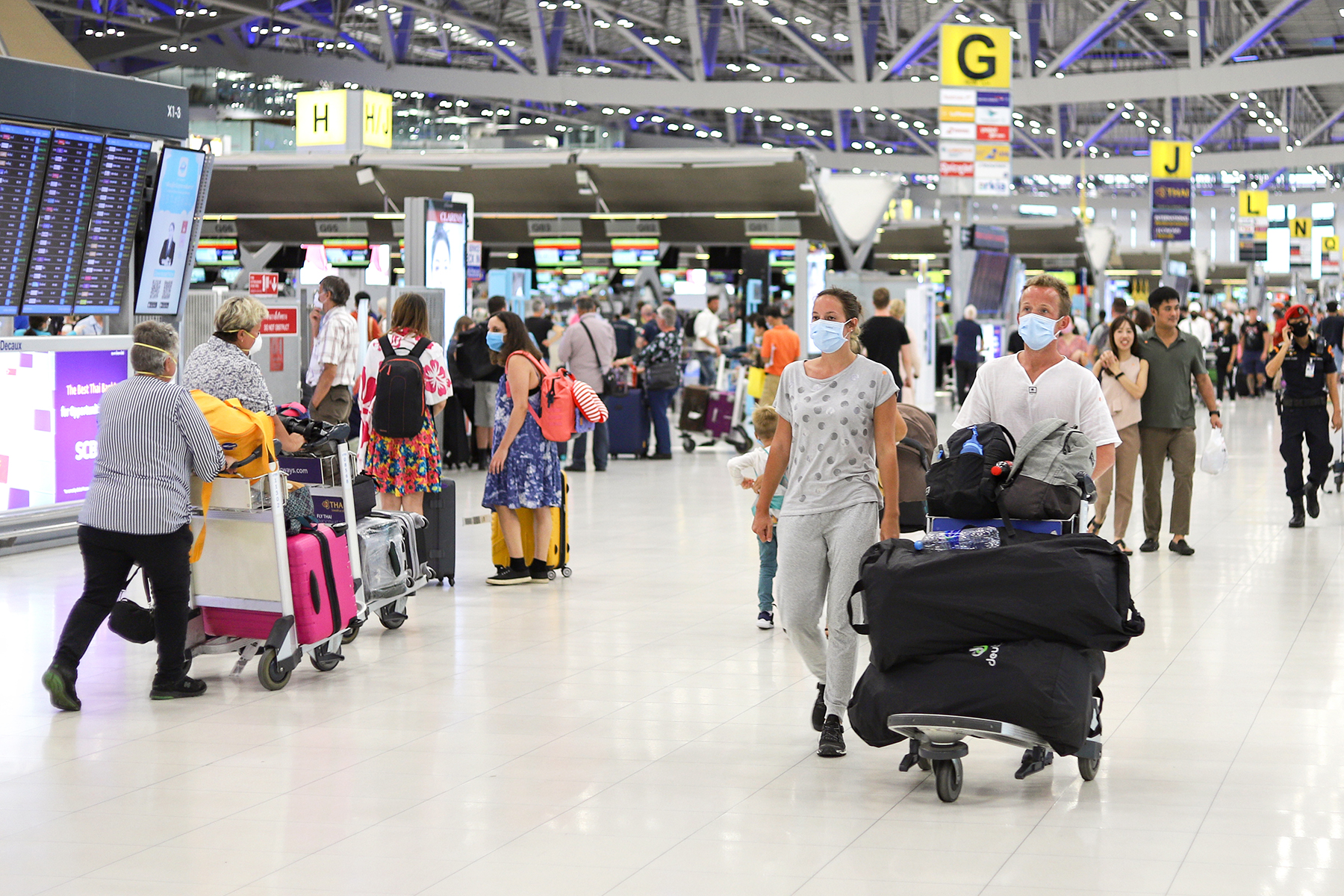Flyers Will Pay How Much for Empty Middle Seats?

Flyers at airport wearing face masks
To keep middle seats open, flyers say they would pay up to a 17 percent premium on their airfare. The new research comes as airlines are split as to whether or not to book flights to capacity, or continue to block middle seats for the indefinite future.
A survey revealed flyers are willing to pay 17 percent more for airfare, if they know they keep the middle seat empty on their next flight to encourage social distancing during the COVID-19 pandemic. As first reported by Business Insider, a survey from travel industry consulting firm Atmosphere Research discovered that flyers are willing to pay more for their flights.
Passenger Premiums for Empty Middle Seats Reflected in Airfare Pricing
The airlines are split on how to approach the middle seat as the novel Coronavirus outbreak continues to hurt their bottom line. American Airlines and United Airlines have committed to book flights “to capacity,” meaning the middle seat is open for business. On the contrary, Delta Air Lines is continuing to keep middle seats open. But is it a winning strategy with passengers?
According to Atmosphere Research, flyers may already be paying a little more to keep middle seats open and continue social distancing. Using numbers to measure passenger revenue per available seat-mile (PRASM), the consulting company found Delta’s PRASM was 6.4 cents in the second quarter of 2020, just over one cent lower than United’s PRASM. But when you adjust for the unused capacity, the company says that Delta has the potential to earn more than its legacy competition.
“If you adjusted Delta’s PRASM for the 40 percent hit it took by blocking seats, Delta is earning a substantial premium over United,” Henry Harteveldt of Atmosphere Research told Business Insider. “Overall, it looks like Delta may be on to something.”
While Delta says they are not charging a premium, Atmosphere says the Atlanta-based carrier has always been a little more expensive in comparison to their competition. However, the COVID-19 pandemic gives the carrier another competition factor. By sacrificing the PRASM from the middle seat, Delta could actually get ahead of the other legacy carriers and earn more business.
“The conversation has shifted,” Harteveldt told Business Insider. “It’s not that on-time performance doesn’t matter, but consumers value physical distancing right now more than they do on-time performance.”
More Airlines Continue to Keep Middle Seats Empty Through October
While Delta has been a leader in the COVID-19 safety initiatives by mandating face mask usage aboard flights and their “Clearance-to-Fly” protocol, they are not the only ones practicing social distancing aboard aircraft. Both Alaska Airlines and JetBlue are committing to keep middle seats empty through October, as part of their novel Coronavirus plans. During the Southwest second quarter earning call, the airline was the first to note they will keep middle seats open through October.
Meanwhile, an informal study by an MIT professor suggests that keeping middle seats open may be the way to prevent the spread of COVID-19 aboard flights. According to an informal study, the professor suggests that flyer’s odds of catching the novel Coronavirus aboard a flight could be as low as 1-in-7,700 when the middle seat is open.
























Flyingtall, expecting basic statistical understanding is way too much to ask for these people. Relangford, presumably you'll you're not so needy it's impossible to survive a few hours being a couple of feet away from each other.
17% extra for 50% extra space? Nope. That ain't gonna fly.
I just love the way people with obvious minimal understanding of physics and statistics/probability, never mind epidemiology, just blather without data about what THEY think is obvious. Data at this point in a disease outbreak are unlikely to be perfect but real data are available and provide plenty of evidence that reduced potential contact with infected droplets is proportional to decreased risk. However, I'd be OK with anti-maskers patronizing services that ignore data while the rest of us preferentially choose services that adhere to the data available. The relative deaths will give us even better data and I have no doubt about the outcome.
Qantas could only sell 22 seats on a 180 seat aircraft. I'm a little slow. Can someone explain that to me?
@ sdsearch ...thank you that was pretty much the same reply I would have posted.